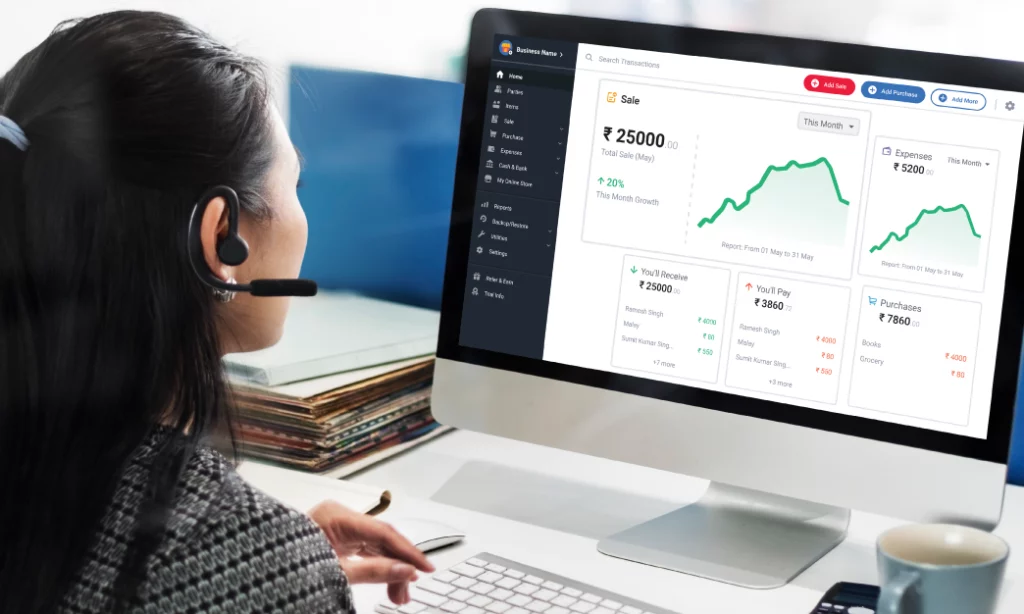
Importance of Invoicing Software
Efficient invoicing is crucial for maintaining cash flow and ensuring business success. Invoicing software automates and streamlines the invoicing process, reducing errors and saving time.
Understanding Your Business Needs
Types of Businesses That Use Invoicing Software
From freelancers to large corporations, invoicing software serves a wide range of businesses, each with unique needs.
Key Features Your Business Needs
Understanding your specific business requirements is the first step. Features such as automation, multi-currency support, and integration with accounting tools might be critical depending on your operations.
Key Features to Look for in Invoicing Software
User-Friendly Interface
A user-friendly interface ensures that you and your team can navigate the software with ease, without extensive training.
Automation and Time-Saving Tools
Automated invoicing reduces manual work and helps avoid errors, making it a key feature for any business.
Multi-Currency and Multi-Language Support
If you do business internationally, multi-currency and multi-language support are vital for managing global transactions.
Integration with Accounting Tools
Seamless integration with your accounting software will improve overall efficiency and reduce manual data entry.
Pricing Models and Budget Considerations

Free vs. Paid Invoicing Software
Many invoicing tools offer free versions, but they often come with limitations. Paid versions may offer more robust features.
Subscription-Based Pricing Models
Most invoicing software operates on a subscription model, where you pay monthly or yearly fees for continued access.
Long-Term Value vs. Short-Term Costs
While some tools may seem expensive upfront, the long-term value of automation and time saved can outweigh the initial cost.
Cloud-Based vs. On-Premise Invoicing Software
Pros and Cons of Cloud-Based Software
Cloud-based software offers flexibility and accessibility from anywhere but may raise concerns about data security.
Security Concerns with On-Premise Software
On-premise software can offer more control over your data but may lack the convenience of cloud solutions.
Integration with Other Business Tools
Accounting and Financial Tools
Ensure the invoicing software integrates with your accounting tools, such as QuickBooks or Xero, to streamline financial management.
CRM and Project Management Software
Integration with CRM and project management tools helps consolidate all business functions in one place.
Scalability of the Software
Small Business vs. Enterprise-Level Features
Choose software that offers flexibility and can scale with your business, providing more advanced features as you grow.
Expanding Functionality as Your Business Grows
As your business grows, your invoicing software should be able to handle increased volume and complexity.
Customer Support and Service
Availability of Customer Support
Good customer support is essential for resolving issues quickly and ensuring the smooth functioning of your invoicing system.
Training and Onboarding
Look for software that offers training resources and onboarding support to help your team get up to speed.
Security Features
Data Encryption
Data encryption ensures that sensitive financial information remains secure while being transmitted or stored.
Backup and Recovery Solutions
A solid backup and recovery system is essential to prevent data loss in case of system failures.
User Reviews and Reputation
How to Interpret Online Reviews
When reading online reviews, focus on recurring themes and feedback from users with similar business needs.
Case Studies from Real Businesses
Case studies provide real-world examples of how businesses are using invoicing software effectively.
Demo and Free Trials
Importance of Testing Software Before Purchase
Always take advantage of free trials to test the software and ensure it meets your needs before committing.
What to Look for During a Demo or Trial
Pay attention to ease of use, functionality, and how well the software integrates with your existing tools.
Legal Compliance
Tax and Legal Compliance Features
The software should help your business comply with local tax laws and financial regulations.
Country-Specific Regulations
Make sure the software is adaptable to specific regulations in the countries where you operate.
Expert Insights
Insights from Financial Experts
Financial experts recommend choosing software that provides automation and integration capabilities to ensure accuracy in invoicing.
Best Practices for Implementing Invoicing Software
Experts suggest implementing invoicing software gradually to ensure smooth adoption by your team.
Future of Invoicing Software
AI and Automation in Invoicing Software
AI-driven tools can further automate invoicing processes, including payment reminders and fraud detection.
Blockchain and Security Advancements
Blockchain technology may soon offer more secure ways to manage invoicing, making it harder for data to be tampered with.
Conclusion
Recap of Key Points
Choosing the right invoicing software depends on your business needs, required features, and security considerations.
Final Thoughts
Take the time to assess your options and use free trials to find the best fit for your business. Proper invoicing software can help you save time, reduce errors, and improve cash flow management.










